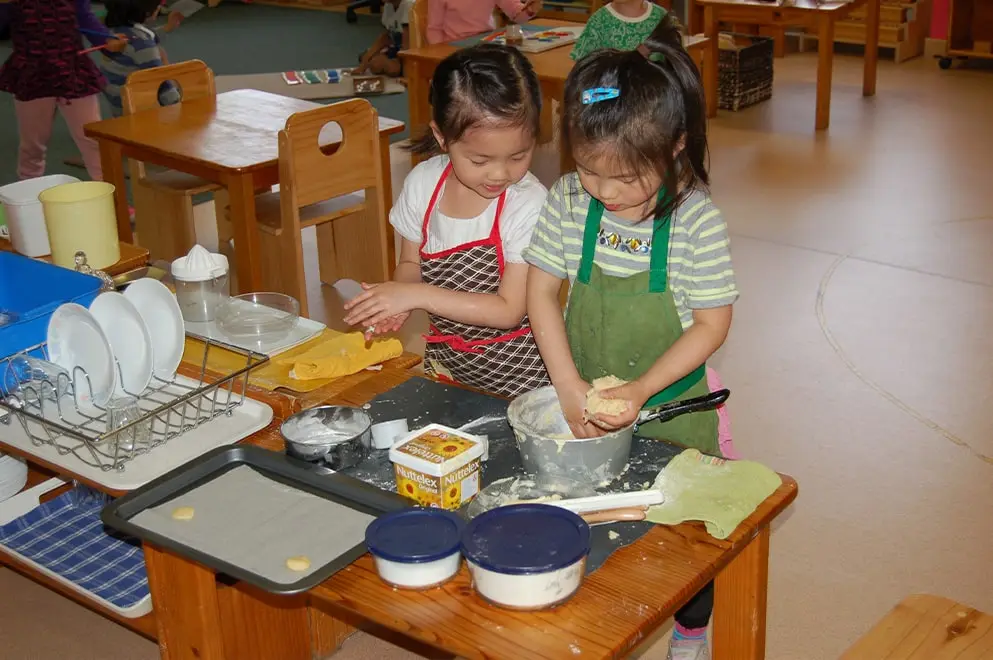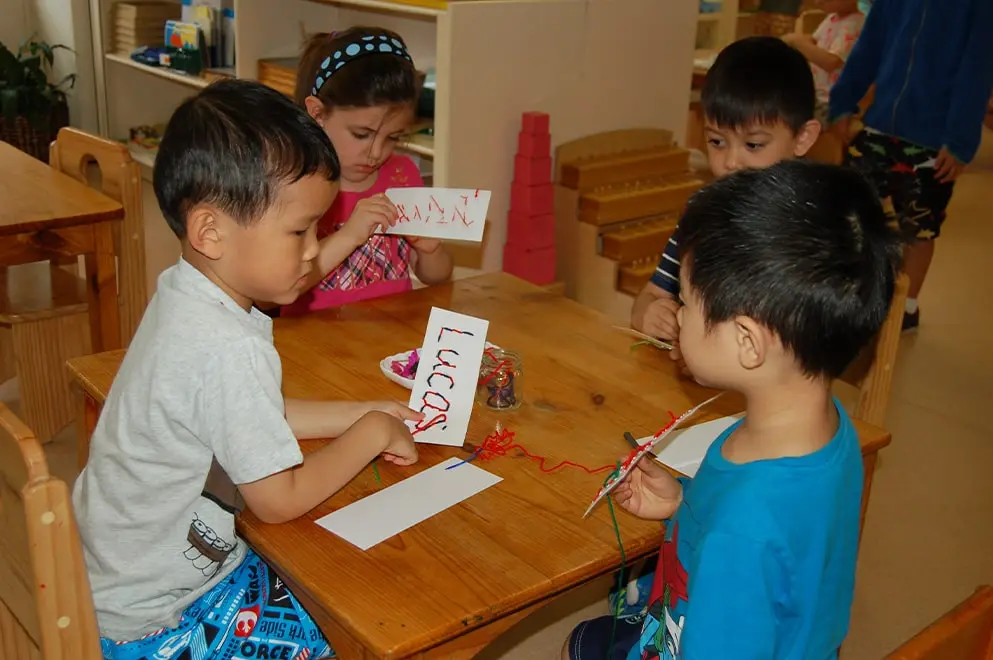



Previous image
Next image
Collaborate, cooperate and show respect
Developing meaningful relationships & emotional resilience
Montessori education prioritises the development of social skills, emotional intelligence, and a sense of community. This approach equips children with valuable life skills that contribute to their social and emotional well-being. Social learning is encouraged in a Montessori environment through:
Mixed-Age Classrooms: Montessori preschool classrooms have mixed-age groups, allowing younger children to learn from older ones and vice versa. This promotes social interaction, cooperation, and mentorship among children.
Cooperative Work: Montessori materials and activities often encourage collaboration and cooperation among children. Children work together on projects, share materials, and help each other problem-solve.
Respect and Courtesy: Montessori educators role model positive social behaviours and emphasise respect and courtesy towards others. Children learn to greet each other, wait their turn, and use polite language. This creates a respectful and harmonious social atmosphere.
Conflict Resolution: Montessori classrooms teach children conflict resolution skills. When disagreements arise, children are encouraged to talk it out, find peaceful solutions, and empathise with each other’s perspectives.
Freedom within Limits: Montessori provides children with freedom to choose their activities within a structured environment. This freedom encourages independence and decision-making while respecting the boundaries of the classroom community.
Grace and Courtesy Lessons: Montessori educators incorporate exercises on grace and courtesy into the curriculum. These exercises help children learn how to interact politely, resolve conflicts, and express themselves respectfully.
Community Activities: Children participate in community-building activities like group discussions, singing songs, sharing stories, collaborative projects, and celebrations of cultural and seasonal events. Children learn about different cultures, traditions, and perspectives, promoting tolerance and respect for diversity. These activities strengthen their sense of belonging to a community.
Mixed-Age Classrooms: Montessori preschool classrooms have mixed-age groups, allowing younger children to learn from older ones and vice versa. This promotes social interaction, cooperation, and mentorship among children.
Cooperative Work: Montessori materials and activities often encourage collaboration and cooperation among children. Children work together on projects, share materials, and help each other problem-solve.
Respect and Courtesy: Montessori educators role model positive social behaviours and emphasise respect and courtesy towards others. Children learn to greet each other, wait their turn, and use polite language. This creates a respectful and harmonious social atmosphere.
Conflict Resolution: Montessori classrooms teach children conflict resolution skills. When disagreements arise, children are encouraged to talk it out, find peaceful solutions, and empathise with each other’s perspectives.
Freedom within Limits: Montessori provides children with freedom to choose their activities within a structured environment. This freedom encourages independence and decision-making while respecting the boundaries of the classroom community.
Grace and Courtesy Lessons: Montessori educators incorporate exercises on grace and courtesy into the curriculum. These exercises help children learn how to interact politely, resolve conflicts, and express themselves respectfully.
Community Activities: Children participate in community-building activities like group discussions, singing songs, sharing stories, collaborative projects, and celebrations of cultural and seasonal events. Children learn about different cultures, traditions, and perspectives, promoting tolerance and respect for diversity. These activities strengthen their sense of belonging to a community.

